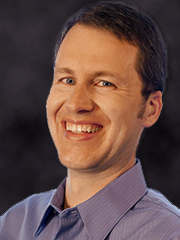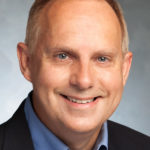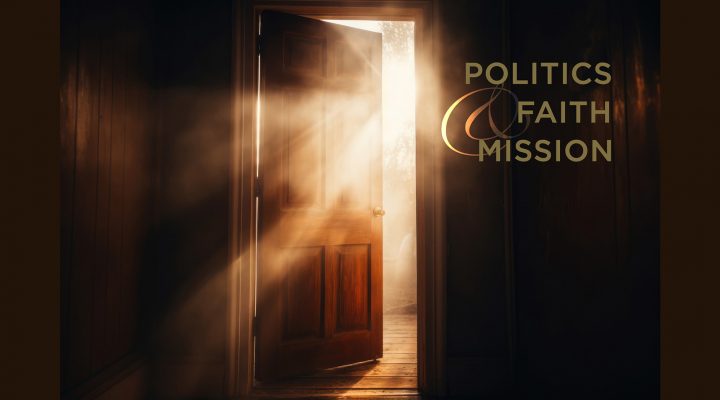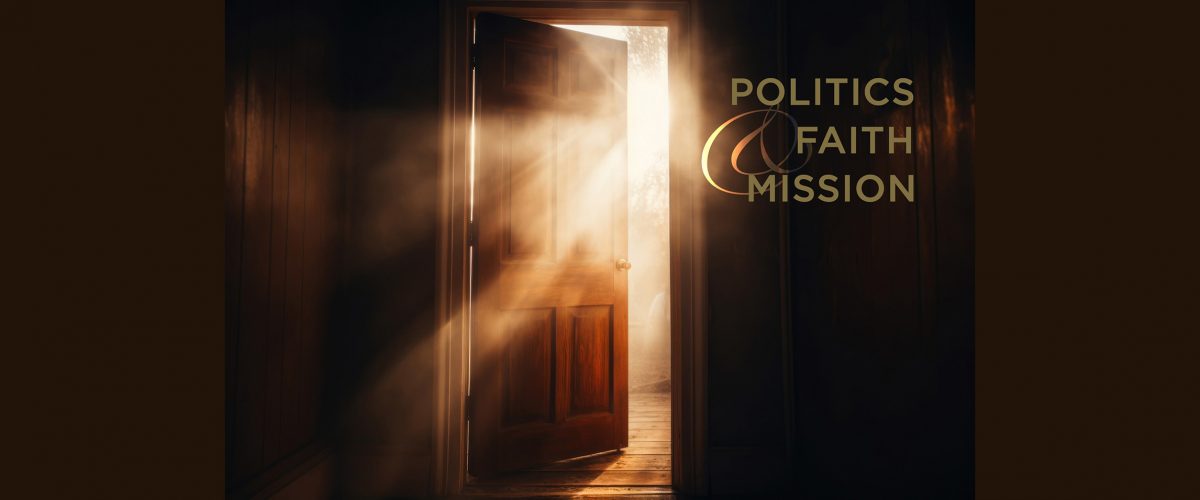Brian Kaylor is president and editor-in-chief of Word&Way, a Baptist minister with a Ph.D. in political communications, and the author or co-author of five books on religion and politics, including a new book on white Christian nationalism with Beau Underwood, Baptizing America: How Mainline Protestants Helped Build Christian Nationalism. I enjoy being in dialogue with him about race, religion and politics, and am grateful for this conversation about the new book.
Greg Garrett: Brian, how do you and Beau define white Christian nationalism? What are the primary concerns that lead you to write Baptizing America?

Brian Kaylor
Brian Kaylor: It’s always good to start with definitions, especially as some people have tried to redefine white Christian nationalism to make their efforts in promoting it seem innocuous. We draw on the work of sociologists — like Andrew Whitehead and Samuel Perry — to unpack this ideology and how it shapes opinions on religion, politics and society.
But the simplest way I like to define Christian nationalism is as an ideology that fuses and confuses American and Christian identities. That is, it suggests that to be a good American, one must also be a good Christian. In other contexts — like Brazil and Russia — simply replace “American” with that national identity.
For those of us in the U.S., there is a particular connection to racism. That’s why it’s important to name white Christian nationalism as you did. Not only does the sociological research show strong correlations between espousing Christian nationalism and holding racist opinions, but it also makes sense historically to underscore the importance of whiteness in Christian nationalism.
“Our Christian nationalism is inherently white Christian nationalism.”
The U.S. was not founded as a “Christian nation” as those pushing Christian nationalism insist. But if it was, it was only a nation for white Christians since it was founded with the genocide of indigenous peoples and the enslavement of Black Africans. Our Christian nationalism is inherently white Christian nationalism.
GG: I’m Episcopalian, and I had not realized how my people were implicated in the creation and furtherance of white Christian nationalism. What are a couple of the tensions or contradictions you uncovered in your research that you think would be particularly important for Mainline Christians to recognize, own up to and maybe correct?
BK: As we unpack in the book, most of the so-called “evidence” that those pushing white Christian nationalism today point to as they try to prove the U.S. should be a “Christian nation” were things largely put in place by Mainline Protestant clergy and politicians. Like “under God” in the Pledge of Allegiance, a change that occurred 70 years ago because of the preaching of a progressive Presbyterian pastor who later marched with Martin Luther King Jr. Or the adoption of “In God We Trust” as our national motto and the establishment of the National Prayer Breakfast.
Then there also are ways Mainline Protestant leaders sought endorsements for their houses of worship as if presidents liking them provided legitimacy. This would particularly include Episcopal congregations in Washington, D.C., like the Washington National Cathedral and St. John’s Episcopal Church. Today, those congregations are doing some important prophetic work. But they’re also at times providing a platform for presidents undermining that very prophetic work. It turns out, we can’t really be both the church of the presidents and the church of the prophets.
GG: How would you respond to those who say America was founded as a Christian nation that needs to “return” to its Christian past? I know that’s not the thrust of your book, but any attempt at engagement is going to require our finding and promoting the facts. Could you share with my readers some of the resources you recommend for yours?
BK: Throughout the Colonial period, we see a constant debate about whether government should embrace what we now call Christian nationalism. Most of the colonies did, even establishing official state churches and supporting such clergy through public funds. So it’s a myth to say many of the early settlers came to what is now the U.S. in search of religious liberty.
“Those pushing Christian nationalism today basically have to make up quotes and pretend like they’re like a detective in a Dan Brown novel.”
Many did flee religious persecution, but they also were willing to persecute others. It’s not that they wanted religious liberty; they just wanted to be the ones in charge of religion and the ones doing the persecuting. That’s why many religious dissenters in the Massachusetts Bay Colony were banished or even executed.
Roger Williams, one of those forced out, founded the colony of Rhode Island and helped start the first Baptist church in the Americas. This counter-witness of Baptists, Quakers and other dissenters continued throughout the colonies even in the face of persecution. Eventually, it started to bring change, inspiring James Madison and other politicians to work to disestablish the Anglicans in Virginia and include church-state separation in the Bill of Rights.
If, on the other hand, those who wanted to create a Christian nation had won the debate, our Constitution would say so. Those pushing Christian nationalism today basically have to make up quotes and pretend like they’re like a detective in a Dan Brown novel finding secret codes marking us as an officially “Christian nation.” But the evidence isn’t there. The only religious reference we instead find in the Constitution before the amendments is Article VI’s prohibition against religious tests for office — something those pushing white Christian nationalism today specifically want to undo.
GG: Chapter 12 of Baptizing America offers a number of possible actions for people and churches hoping to move forward, such as knowing and discussing your church’s history. What would you describe as some essential steps for people of faith who want to combat Christian nationalism?
“We need to do the difficult work of separating the wheat from the chaff, of separating what American from what’s gospel.”
BK: We especially encourage Christians concerned about the dangers of white Christian nationalism to start by looking at their own church, denomination and tradition. It can be cathartic just to criticize conservative white evangelicals — who do indeed deserve our rebuke. But white Christian nationalism shows up in most white churches in the United States, not just conservative evangelical ones. It’s kind of like microplastics: there’s some of it in all of us. Now we need to figure out how to detox and do the difficult work of separating the wheat from the chaff, of separating what’s American from what’s gospel.
We can each start this process by looking around and asking some questions. What are ways our church has encouraged Christian nationalism? Is there a U.S. flag flying outside the building or, worse, in the sanctuary? Do we turn Sundays close to national holidays like the Fourth of July into times to praise the nation and the military instead of just God? After looking at our own practices, we can work to reduce the white Christian nationalism there. We might also discover the need for acts of repentance.
GG: I’m inviting all my interview subjects this year to reflect on what is bringing them joy and hope, whether that’s in culture, family life, religious practice, whatever. What are you reading, watching, listening to, anything that brings you joy? What makes you want to get out of bed in the morning?
BK: On the book front, I’m so encouraged by the churches where they are picking it up and using in Sunday school classes or small group book studies. It’s particularly fun to join such a group in person or via Zoom near the end of their study for dialogue.
Beyond the book, since I do have more of a life than that, the biggest thing giving me joy lately is the free ping pong table we picked up off the side of the road. For just the price of some balls and some used paddles, we’re having fun as a family challenging each other (for the record, I usually win). My middle-school son’s activities not only keep us busy but are also fun, from cheering for him at cross-county meets to joining him in his love of Lego, as well as getting refreshers in math as he works on homework. This keeps me grounded and even hopeful as I study and write about dark topics like the threat of white Christian nationalism.

Greg Garrett
Greg Garrett teaches creative writing, film, literature and theology classes at Baylor University. He is the author of two dozen books of fiction, nonfiction, memoir and translation, including the critically acclaimed novels Free Bird, Cycling, Shame and The Prodigal. His latest novel is Bastille Day. He is one of America’s leading voices on religion and culture. Two of his recent nonfiction books are In Conversation: Rowan Williams and Greg Garrett and A Long, Long Way: Hollywood’s Unfinished Journey from Racism to Reconciliation. He is a seminary-trained lay preacher in the Episcopal Church. He lives in Austin with his wife, Jeanie, and their two daughters.
More from this series:
Politics, faith and mission: A conversation with Colin Allred
Politics, faith and mission: A conversation with Tia Levings
Politics, faith and mission: A conversation with Linda Livingstone
Politics, faith and mission: A conversation with Samuel Perry
Politics, faith and mission: A conversation with Jimi Calhoun
Politics, faith and mission: A conversation with David Dark
Politics, faith and mission: A conversation with Randolph Hollerith
Politics, faith and mission: A conversation with Jillian Mason Shannon
Politics, faith and mission: A conversation with Bishop Mariann Edgar Budde
Politics, faith and mission: A conversation with Vann Newkirk II
Politics, faith and mission: A conversation with Sarah McCammon
Politics, faith and mission: A conversation with Winnie Varghese
Politics, faith and mission: A conversation with Kaitlyn Schiess
Politics, faith and mission: A conversation with Russell Moore
Politics, faith and mission: A BNG interview series on the 2024 election and the Church
Politics, faith and mission: A talk with Tim Alberta on his book and faith journey
Politics, faith and mission: A conversation with Jemar Tisby
Politics, faith and mission: A conversation with Leonard Hamlin Sr.
Politics, faith and mission: A conversation with Ty Seidule
Politics, faith and mission: A conversation with Jessica Wai-Fong Wong


